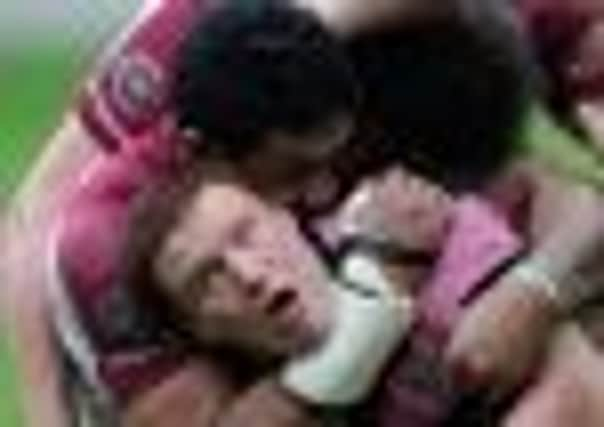Allan Massie: New players show we are no longer the poor relations


I am not talking only about international rugby and summer tours; these have been a regular part of the calendar for a quarter of a century at least. The close season of the club game – both amateur and professional – also gets shorter and shorter. Clubs were playing this year well into May, even to near the end of May, and they will be in action again in August, first with friendlies – or warm-up matches – and then into the real thing. We may not have the winter break that some call for every year, but we already have summer rugby, or rugby in what may pass for summer.
This week has seen the publication of the RaboDirect Pro12 fixture list. (No doubt we should all be grateful for the sponsorship of RaboDirect, even if few fans may know what the company is or does, but it is still a dreadful name for a league.)
Advertisement
Hide AdAdvertisement
Hide AdIt’s the mixture as before, except that one composite Italian club has replaced another. Leopards can’t change their spots, but Aironi can give way to Zebras. For our clubs, however, this season is very much a new start, with much-changed and – we hope – fortified squads.
The often criticised Murrayfield hierarchy seems to have brought off a minor miracle. A few years ago, at the height of the economic boom when money (at least in the form of credit) was apparently growing on trees, the SRU was not able to fund our pro teams adequately.
Now, in the midst of a long-lingering recession, when belt-tightening is everywhere the rule and people are paying off their maxed-out credit cards, they have found the wherewithal to increase the pro teams’ players budgets considerably.
Lord knows how they have done it, but the upshot is that for the first time Edinburgh and Glasgow are not the poor relations among the professional clubs in the northern hemisphere. They’re still, admittedly , poor relations of the top French clubs, but they are standing on much the same level as everyone else. This is as remarkable as it is welcome.
One consequence is the influx of new players, many of whom are not qualified to represent Scotland and never can be. This worries some people, understandably, given that we have only two professional clubs. Will the imports retard, even block, the development of young Scots? Glasgow, for instance, have signed the brilliant Fijian scrum-half Nikola Matawalu. Fine; he’s a terrific player.
But his arrival pushes young Murray McConnell, who played so well for Scotland in the Junior World Cup in South Africa a few weeks ago, down to number four in the Glasgow scrum-halves pecking order. A fair point. On the other hand, Glasgow must win matches when Chris Cusiter is on international duty or in need of a week off, and they are perhaps more likely to do so when his replacement is himself an international player. One might add that life is going to be even more demanding than usual for scrum-halves this season. The introduction of the five-second rule when the ball is available at the back of a ruck means they are going to have to think and act more quickly. They will also get scragged and clobbered more often.
Most of the non-Scots being brought in by Edinburgh and Glasgow are experienced and battle-hardened. Some have probably put international ambitions behind them. One hopes they may be just what is needed to add ballast. Edinburgh were much in need of this last season: very good when they were at full strength; very poor when Scotland calls and injuries deprived them of more than two-thirds of their first-choice squad. This year they will also be without their top try-scorer, Tim Visser, whenever Andy Robinson calls his Scotland squad together. So they were desperately in need of reinforcements if they are to have any chance of reaching the League play-offs.
It is clear that top-level club rugby has everywhere become multi-national. Ulster owed a lot to their quartet of South Africans last season. Top French clubs like Toulouse, Toulon, Stade Francais and Clermont Auvergne all field foreigners – at Toulon they regularly make up more than half the match-day XV. It’s the same in England. Irish and Welsh clubs have never hesitated to recruit from other countries. If Einburgh and Glasgow are to make a real mark in the Heineken and the Celtic league, they have no choice but to do the same. It’s good that the SRU has at last found itself able to make money available to allow them to do so and, one should add, to let Edinburgh hire a forwards coach of Neil Back’s quality.
Advertisement
Hide AdAdvertisement
Hide AdYet we still have the problem of how best to bring on young players. Raising the level of the amateur or semi-pro club game is of some help in doing this. Yet, once players are attached to the pro clubs, it is difficult to integrate them into the amateur game. Ideally Edinburgh and Glasgow would run their own reserve or age-group teams, as French and English clubs do. At the moment this can’t be done. Some day perhaps the Celtic League, under whatever name, may be strong and profitable enough, to have its own reserve league. But that day is a very long way off.